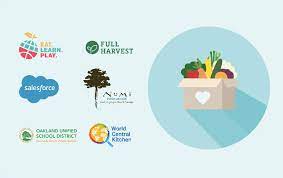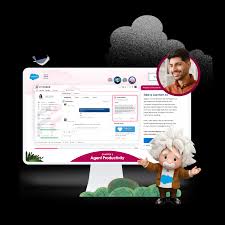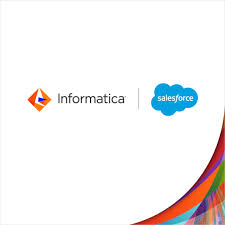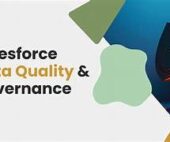FareShare’s Tech-Driven Fight Against Food Waste and Insecurity
Every year, around 10 million tons of perfectly edible surplus food goes to waste in the UK, while millions struggle to afford to have enough to eat. This waste not only exacerbates food poverty but also has a significant environmental impact, with greenhouse gases from rotten or wasted food accounting for about half of all global food system emissions. Salesforce Data and AI Prevent Food Waste.
Charity FareShare is acutely aware of the severity of the situation. CEO George Wright emphasizes, “If food waste was a country, it would be the third biggest producer of global greenhouse gas emissions behind America and China.”
Globally, 30% of food is wasted, and in the UK, it’s 25%, encompassing food thrown away at home, ploughed back into the ground, or wasted in the hospitality and retail industries. FareShare, which started 30 years ago, originally aimed to tackle this issue by redistributing surplus food that would otherwise go to waste.
Now, FareShare operates 35 warehouses across the United Kingdom, employing around 600 people and 15,000 volunteers. They collect surplus food from 700 food companies and work with 8,500 charities to redistribute it to school clubs, community centers, and faith groups.
Growth Amid Crisis
Although FareShare had grown into a national organization, it was still relatively small when COVID-19 hit. Wright explains, “FareShare was about £3 million in terms of fundraising. COVID came and everything boomed.”
During the pandemic, demand for FareShare’s services skyrocketed. Collaborations with high-profile figures like footballer Marcus Rashford brought more focus and support. The charity’s fundraising surged from £3 million to as high as £75 million before stabilizing at around £23 million. The amount of food distributed increased from 5,000 tons in the early days to 55,000 tons.
The cost-of-living crisis has further exacerbated food insecurity, with the number of people in need more than doubling from six million to 13 million. Wright notes, “The bottom 20% of our society is economically cut adrift. Therefore, we’ve seen demand explode for more and more food. Last year, we did 55,000 tons, that’s 130 million meals. We could easily double or treble that if we had access to the food and the finance.”
Salesforce Data and AI Prevent Food Waste
To meet this growing demand, FareShare is ramping up its use of technology, particularly Salesforce. Over the past seven years, FareShare has utilized Salesforce’s Sales and Service Cloud to manage customer contacts and some food offers. Recently, FareShare conducted a full review of its operations and technology use, deciding to significantly increase its investment in Salesforce.
FareShare is now exploring how Nonprofit Cloud and Data Cloud can benefit the organization. Wright explains, “Why reinvent the wheel? If there’s something great out there, use it and use it quickly.”
Nonprofit Cloud provides FareShare with a unified view of its supporters, enabling better management of food and monetary donors. Data Cloud offers a centralized data source, replacing disparate spreadsheets, to improve data management.
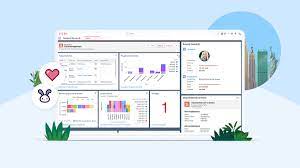
The aim is to have a holistic view of supporters, including donation history and preferences, to enhance their experience and demonstrate the impact of their contributions. AI components within Salesforce further boost productivity by suggesting tailored communications, drastically reducing the time required for tasks like crafting donor emails.
Future Prospects
FareShare is in the early stages of integrating Nonprofit Cloud and Data Cloud, aiming to establish these key systems before expanding into the full Salesforce ecosystem. Wright emphasizes the broader benefits of this partnership: “We’re not just getting the tools, we’re getting ways of working.”
The primary objective for the additional Salesforce technology is improving fundraising. FareShare needs enhanced tech to scale its supporter base, generate more income, and effectively communicate the impact of donations. Wright envisions leveraging the wider Salesforce ecosystem to connect surplus food with charities in need, optimizing logistics to maximize social impact and minimize costs.
The Bigger Picture
FareShare sees AI playing a crucial role in tackling food waste and sustainability, potentially linking food sources and surplus across the country to charities in need. Wright concludes, “There’s more food wasted than we tackle and more charities that need more food. If we could connect those with a logistics solution, we could optimize for maximum use of food, minimum use of miles to get it to them. Maximum social impact, minimal cost. There’s a big tech opportunity there.”
By harnessing the power of technology and strategic partnerships, FareShare aims to continue its mission to reduce food waste and food insecurity, creating a more sustainable and equitable future.
Salesforce Data and AI Prevent Food Waste

